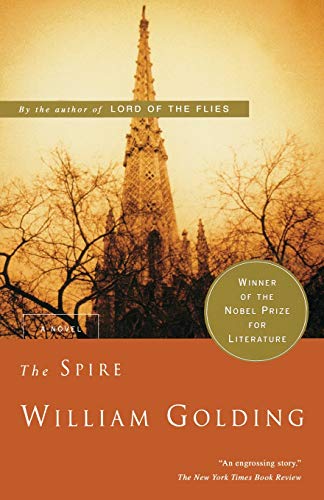-
Sophocles, The Oedipus Cycle: Oedipus Rex, Oedipus at Colonus, Antigone
. Sophocles, Dudley Fitts, Robert Fitzgerald
Paperback (Mariner Books, Nov. 1, 2002)English versions of Sophocles’ three great tragedies based on the myth of Oedipus, translated for a modern audience by two gifted poets. Index.
-
Blindness
Jose Saramago, Giovanni Pontiero
Paperback (Harvest Books, Oct. 4, 1999)A stunningly powerful novel of humanity's will to survive against all odds during an epidemic by a winner of the Nobel Prize for Literature. An International Bestseller • "This is a shattering work by a literary master.”—Boston Globe A city is hit by an epidemic of "white blindness" which spares no one. Authorities confine the blind to an empty mental hospital, but there the criminal element holds everyone captive, stealing food rations and raping women. There is one eyewitness to this nightmare who guides seven strangers—among them a boy with no mother, a girl with dark glasses, a dog of tears—through the barren streets, and the procession becomes as uncanny as the surroundings are harrowing. A magnificent parable of loss and disorientation, Blindness has swept the reading public with its powerful portrayal of our worst appetites and weaknesses—and humanity's ultimately exhilarating spirit. "This is a an important book, one that is unafraid to face all of the horror of the century."—Washington Post A New York Times Notable Book of the Year A Los Angeles Times Best Book of the Year
-
A Good Man Is Hard to Find and Other Stories
Flannery Oconnor
Paperback (Harcourt Brace Jovanovich, Aug. 23, 1977)ONE OF THE GREATEST AMERICAN SHORT STORY COLLECTIONSIn 1955, with this short story collection, Flannery O'Connor firmly laid claim to her place as one of the most original and provocative writers of her generation. Steeped in a Southern Gothic tradition that would become synonymous with her name, these stories show O'Connor's unique, grotesque view of life-- infused with religious symbolism, haunted by apocalyptic possibility, sustained by the tragic comedy of human behavior, confronted by the necessity of salvation. With these classic stories-- including "The Life You Save May Be Your Own," "Good Country People," "The Displaced Person," and seven other acclaimed tales-- O'Connor earned a permanent place in the hearts of American readers."Much savagery, compassion, farce, art, and truth have gone into these stories. O'Connor's characters are wholeheartedly horrible, and almost better than life. I find it hard to think of a funnier or more frightening writer." -- Robert Lowell "In these stories the rural South is, for the first time, viewed by a writer who orthodoxy matches her talent. The results are revolutionary." -- The New York Times Book Review Flannery O'Connor (1925-1964) was born in Savannah, Georgia. She earned her M.F.A. at the University of Iowa, but lived most of her life in the South, where she became an anomaly among post-World War II authors-- a Roman Catholic woman whose stated purpose was to reveal the mystery of God's grace in everyday life. Her work-- novels, short stories, letters, and criticism-- received a number of awards, including the National Book Award.
-
Orlando: A Biography
Virginia Woolf
Paperback (Mariner Books, Oct. 24, 1973)In her most exuberant, most fanciful novel, Woolf has created a character liberated from the restraints of time and sex. Born in the Elizabethan Age to wealth and position, Orlando is a young nobleman at the beginning of the story-and a modern woman three centuries later. “A poetic masterpiece of the first rank” (Rebecca West). The source of a critically acclaimed 1993 feature film directed by Sally Potter. Index; illustrations.
-
The Origins of Totalitarianism
Hannah Arendt
Paperback (Harcourt, Brace, Jovanovich, )None
-
How to Read a Poem: And Fall in Love with Poetry
Edward Hirsch
Paperback (Harvest Books, March 7, 2000)How to Read a Poem is an unprecedented exploration of poetry and feeling. In language at once acute and emotional, distinguished poet and critic Edward Hirsch describes why poetry matters and how we can open up our imaginations so that its message can make a difference. In a marvelous reading of verse from around the world, including work by Pablo Neruda, Elizabeth Bishop, Wallace Stevens, and Sylvia Plath, among many others, Hirsch discovers the true meaning of their words and ideas and brings their sublime message home into our hearts. A masterful work by a master poet, this brilliant summation of poetry and human nature will speak to all readers who long to place poetry in their lives.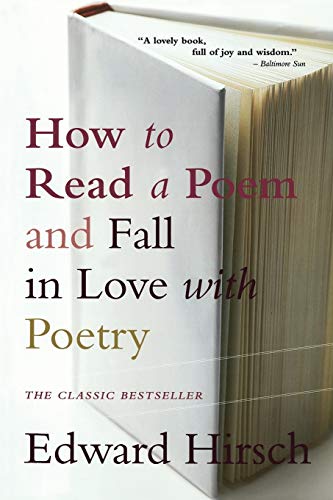
-
Mama's Bank Account
Kathryn Forbes
Paperback (Mariner Books, March 20, 1968)The charming adventures of the Mama of an immigrant Norwegian family living in San Francisco. This bestselling book inspired the play, motion picture, and television series I Remember Mama.
-
A Primer of Chess
Jose R. Capablanca
Paperback (Mariner Books, Nov. 11, 2002)A basic manual of chess by the master José Raul Capablanca, regarded as one of the half dozen greatest players ever. Capablanca was noted especially for his technical mastery, and in this book he explains the fundamentals as no one else could. Diagrams.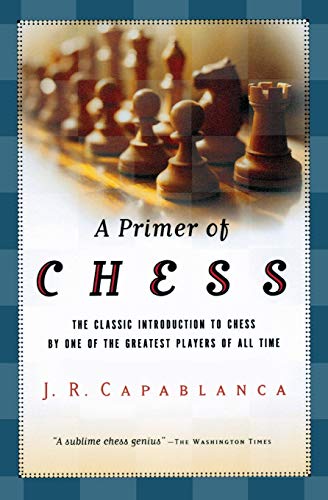
-
Gun, with Occasional Music
Jonathan Lethem
Paperback (Harvest Books, Sept. 1, 2003)Gumshoe Conrad Metcalf has problems—there's a rabbit in his waiting room and a trigger-happy kangaroo on his tail. Near-future Oakland is a brave new world where evolved animals are members of society, the police monitor citizens by their karma levels, and mind-numbing drugs such as Forgettol and Acceptol are all the rage. Metcalf has been shadowing Celeste, the wife of an affluent doctor. Perhaps he's falling a little in love with her at the same time. When the doctor turns up dead, our amiable investigator finds himself caught in a crossfire between the boys from the Inquisitor's Office and gangsters who operate out of the back room of a bar called the Fickle Muse. Mixing elements of sci-fi, noir, and mystery, this clever first novel from the author of Motherless Brooklyn is a wry, funny, and satiric look at all that the future may hold.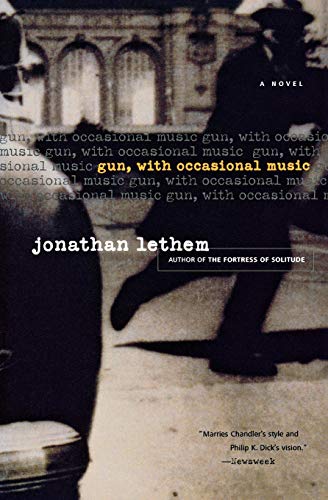
-
The Cocktail Party
T. S. Eliot
First Edition (Mariner Books, March 18, 1964)A modern verse play about the search for meaning, in which a psychiatrist is the catalyst for the action. “An authentic modern masterpiece” (New York Post). “Eliot really does portray real-seeming characters. He cuts down his poetic effects to the minimum, and then finally rewards us with most beautiful poetry” (Stephen Spender).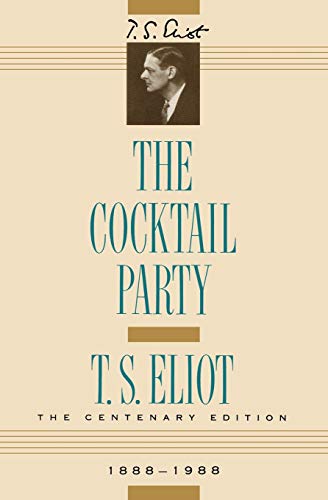
-
Count Us In: Growing Up with Down Syndrome
Jason Kingsley, Mitchell Levitz
Paperback (Mariner Books, March 5, 2007)At ages nineteen and twenty-two, respectively, Jason Kingsley and Mitchell Levitz shared their innermost thoughts, feelings, hopes, and dreams, their lifelong friendship―and their experiences growing up with Down syndrome. Their frank discussion of what mattered most in their lives―careers, friendships, school, sex, marriage, finances, politics, and independence―earned Count Us In numerous national awards, including the EDI Award from the National Easter Seal Society. More important, their wit, intelligence, candor, and charm made a powerful and inspirational statement about the full potential of people with developmental disabilities, challenging prevailing stereotypes. Now, thirteen years later, the authors discuss their lives since then―milestones and challenges, developments expected and unexpected―in a new afterword.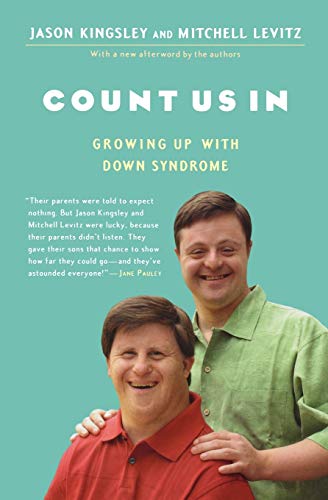
-
The Spire
William Golding
Paperback (Houghton Mifflin, May 6, 2009)The vision that drives Dean Jocelin to construct an immense new spire above his cathedral tests the limits of all who surround him. The foundationless stone pillars shriek and the earth beneath them heaves under the structure’s weight as the Dean’s will weighs down his collapsing faith.